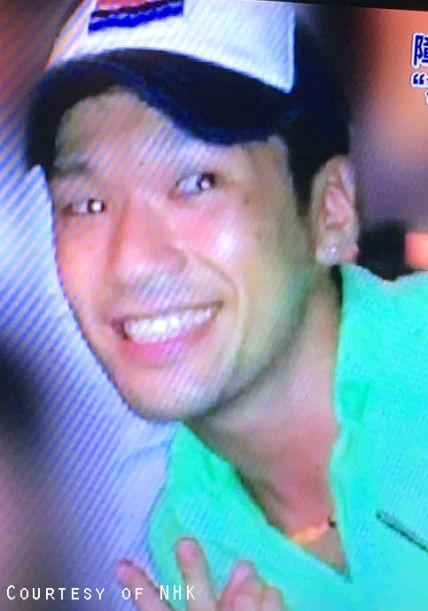|
|
Op-Ed
Japan to the World: We've Got Our Own Murderous Nutters, Too
Wednesday, July 27, 2016
 Satoshi Uematsu
Satoshi Uematsu
By Fred Varcoe
Tokyo- (Pan-Orient News) Did Tokyo’s militaristic police force expect a young man to break into a care facility and murder 19 people? How could they, you ask? It was another act of random violence.
Except it wasn’t.
Satoshi Uematsu, the man who has admitted to the attack in Sagamihara west of Tokyo telegraphed his intentions in a letter to the speaker of the Japanese Diet’s Lower House in February.
“I can wipe out a total of 470 individuals,” Uematsu wrote in a letter to Tadamori Oshima in February shortly before being committed to a hospital “for fear he would harm others.” After a doctor decided his patient had “improved” early in March, he was released. As a result, 19 people are dead and dozens were injured.
Killing 19 people in cold blood is insane enough but Uematsu still wasn’t held even after claiming “I may be able to revitalize the world economy.”
Unlike Europe and the United States, which seem fixated on Islamic, Arab and immigrant killers, Japan has a pressing need to look at its own; acts of terror in Japan have been almost exclusively home-grown.
The closest Japan has come to religious terror were the attacks by Buddhist death-cult Aum Shinrikyo led by eccentric guru Shoko Asahara. After failing to make an impression on the political scene, Asahara vowed to wreak vengeance on his imaginary enemies by gassing them with sarin or, in less inspired moments, just strangling them (them including a 1-year-old baby).
Despite warning signs, Japan’s police force were slow to react to the Aum terror threat as they were reluctant to tackle a powerful religious group.
One wonders if history could repeat itself as the current government includes representatives from Komeito, the political wing of the powerful Soka Gakkai Buddhist cult. While the police were happy to respond reactively to Aum Shinrikyo, they are still slow to nip danger in the bud. A number of stalking victims have been murdered or attacked recently despite the police being notified.
Japan’s most famous political terrorists were the Japan Red Army, who chose to export their terror to the Middle East in preference to actions at home, although they did hijack three Japan Airlines flights and murder a number of their renegade comrades. While there were serious incidents in Japan, they were relatively trivial compared to incidents abroad such as the attack on Lod Airport.
Mass murders in Japan are invariably committed by deranged individuals, many of whom, like Uematsu, calmly turn themselves into a police station after their crimes. Echoes of the Nice incident occurred in June 2008 when a temporary worked drove his van into a crowded street and started stabbing people to death before being apprehended. A number of murderers in Japan have claimed they killed because they “just wanted to find out what it was like to kill someone.”
So rather than target certain groups in society, Japan has to be wary of individuals who can no longer cope with their lives. Japanese society is based on social order and compliance but when the strain of conformity is too much to bear, the restraints are broken and chaos ensues. With the country facing tough economic times, the level of poverty in Japan is increasing rapidly and the government is doing little to help those on the lower end of the economic scale.
As a result, individuals are finding it harder to cope. It is not unusual to see people talking to themselves in the street or wiling away the time on Tokyo’s “circle train line.”
The parallels with recent attacks in the West are clear to see; individuals who aren’t able to cope with their situations. While the West looks at the failure of religion to control murderous intentions, Japan is looking at failure of society.
But in reality, are they not one and the same?
Fred Varcoe is a British freelance journalist based in Chiba, Japan
© PanOrient News All Rights Reserved.
|
|

